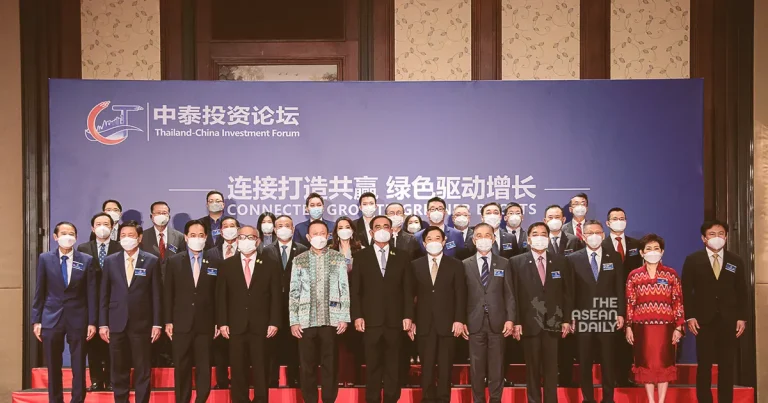2-10-2023 (BANGKOK) The president of the Thai-Chinese Chamber of Commerce (TCCC), Narongsak Puttapornmongkol, has emphasized the importance of maintaining a neutral stance in any conflict between the United States and China while deepening bilateral trade ties with China. In an interview with the Bangkok Post, Narongsak expressed optimism that the ongoing US-China conflict could present opportunities for Thailand’s economy.
Narongsak encouraged Chinese enterprises that export to the US or Europe to consider expanding their investments in Thailand. By utilizing materials within the country for production, these companies can mitigate potential disruptions caused by the conflict. He noted that many firms have shown interest in relocating to Thailand.
Additionally, Narongsak highlighted that some US companies are seeking new manufacturing bases, particularly in Asia. Thailand should take advantage of this opportunity by positioning itself as an attractive investment destination.
While acknowledging the close ties between Thailand and China, Narongsak stressed the importance of maintaining positive trade relations with both China and the US. He expressed confidence in the new government led by Srettha Thavisin, believing it would be able to balance the influence of the two global powers. Narongsak urged Thailand to remain neutral in the conflict, emphasizing the need to find economic opportunities amidst the crisis and gain access to larger markets.
Regarding concerns about Chinese companies repatriating their earnings, Narongsak affirmed that Thailand has laws in place to ensure compliance. Foreign companies operating in Thailand must allow Thai shareholders to control at least 51% of their company. He also emphasized the importance of tax compliance and strict enforcement of laws to discourage dubious Chinese businesses from operating in Thailand.
Narongsak addressed the trade deficit with China, stating that Thailand can utilize imported materials from China to produce goods for export to other countries, mitigating the impact of the deficit.
He also discussed the potential for Thai firms to invest in China, highlighting the Chinese government’s special economic zones (SEZs) that welcome foreign investors. Narongsak suggested focusing on sectors where Thailand has expertise, such as the food industry, as even selling a single product in China could tap into the vast market with its 1.4 billion population.
Narongsak commended the Thai government’s visa-exemption scheme for Chinese nationals, particularly its timely launch before Chinese National Day, which is celebrated with a week-long holiday starting on October 1.
He urged the government to expedite the high-speed railway project and complete missing segments that would connect it with the China-Laos high-speed railway under the Belt and Road Initiative. Narongsak proposed speeding up the double-track railway project, particularly the 160km segment from Khon Kaen to Nong Khai on the Laos border, to enhance logistics between Laos and China.
Furthermore, he suggested extending the working hours of customs services at border checkpoints and providing a one-stop service to facilitate cross-border trade. Narongsak believed this measure could be implemented within a year while waiting for the completion of the dual-track railway system.
Narongsak expressed satisfaction with the improved relationship between Thailand and China, particularly following Chinese President Xi Jinping’s visits to Thailand. He highlighted the positive outcomes of the World Chinese Entrepreneurs Convention hosted by the TCCC, which attracted over 4,000 Chinese businesspeople from 50 countries, increasing awareness of the advantages Thailand offers to Chinese entrepreneurs.
Narongsak emphasized the importance of offering an attractive investment policy to compete with neighboring countries such as Vietnam, Indonesia, Cambodia, and Malaysia. He asserted that Thailand’s stability and safety make it an ideal investment destination, and efforts should be made to convey this message to Chinese investors.




